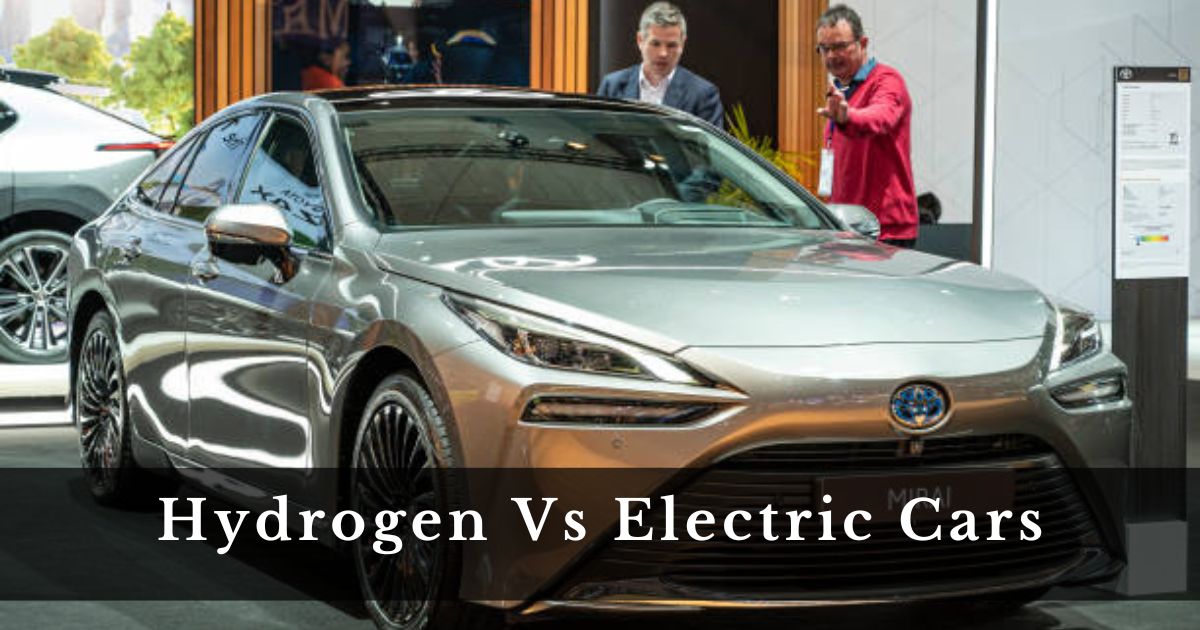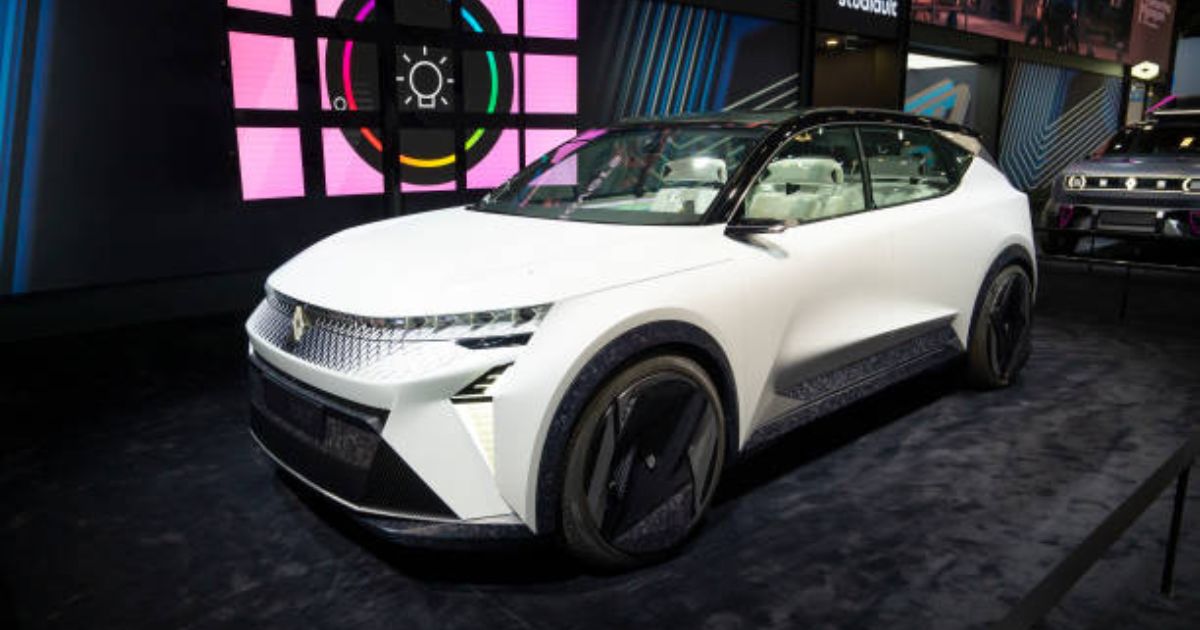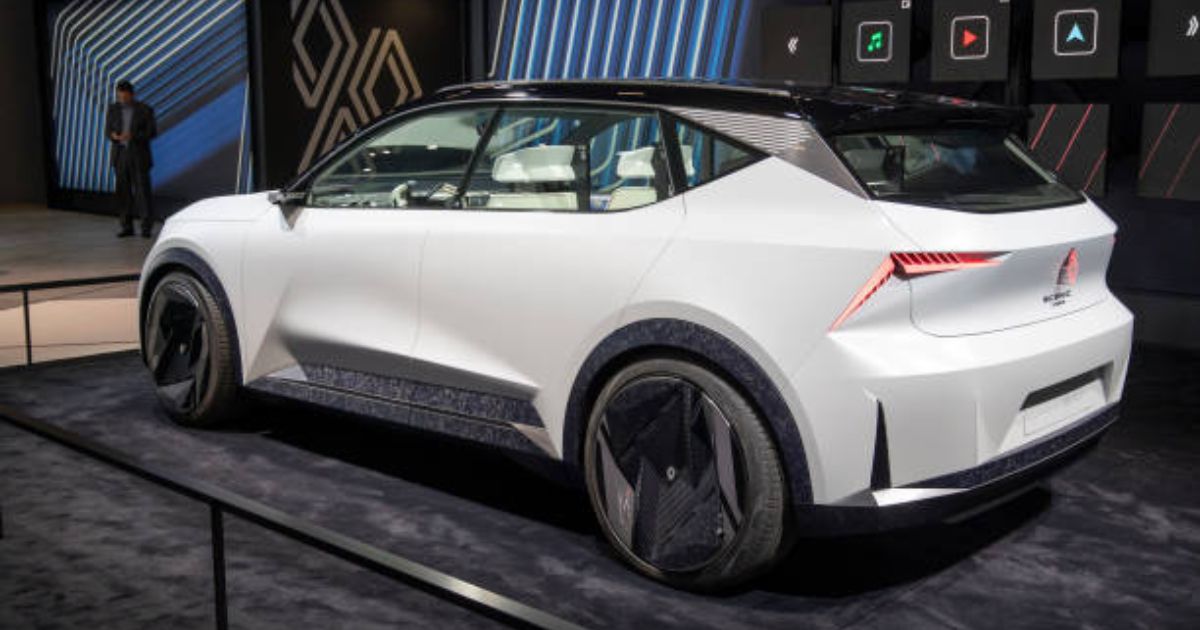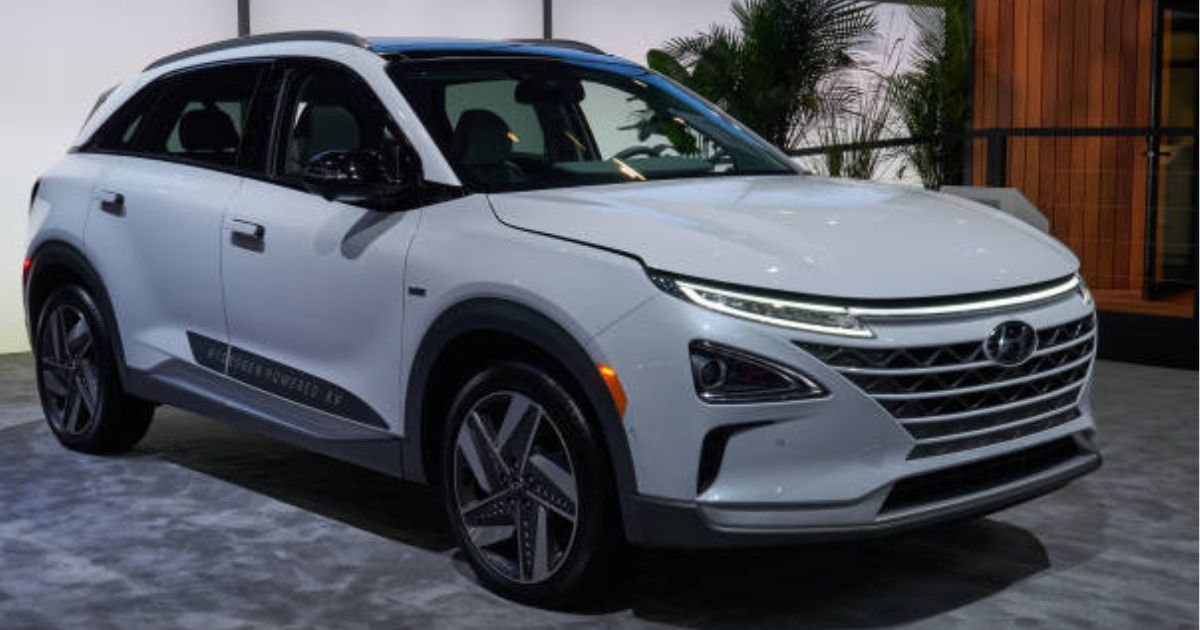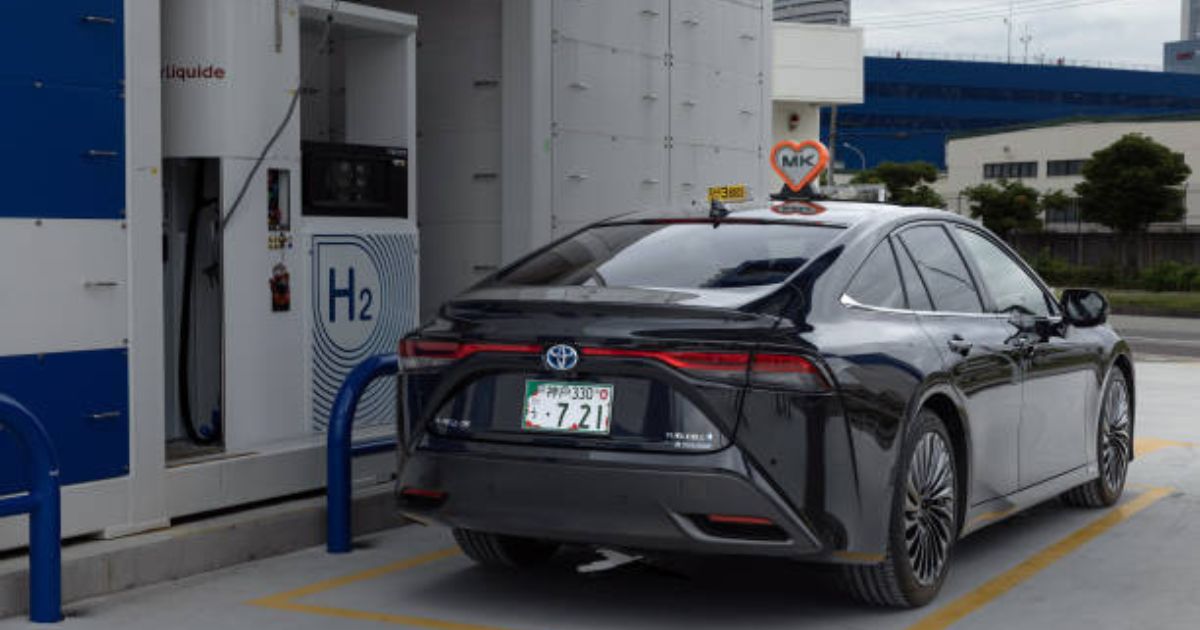Hydrogen Vs Electric Cars, The battle between hydrogen and electric cars is shaping the future of green transportation. Both technologies promise to reduce carbon emissions and dependence on fossil fuels, but which is better? Let’s break down the key differences to understand how they work, their benefits, and the challenges they face.
Hydrogen Vs Electric Cars
Introduction
When it comes to clean energy vehicles, two options often come up: hydrogen cars and electric cars. Both promise a greener future, but which one is better? Let’s break it down in a way that’s simple to understand.
What Are Hydrogen Cars?
Hydrogen cars, or fuel cell vehicles, use hydrogen gas to create electricity. The process involves combining hydrogen with oxygen in a fuel cell to produce power, and the only byproduct is water.
Pros of Hydrogen Cars:
Fast Refueling: Hydrogen cars can be refueled in about the same time it takes to fill up a gas tank, usually under five minutes.
Long Range: They typically have a longer range per refuel compared to electric cars.
Zero Emissions: The only emission from hydrogen cars is water vapor.
Cons of Hydrogen Cars:
Limited Infrastructure: Hydrogen fueling stations are still rare, making it hard to travel long distances.
High Cost: Producing and storing hydrogen is expensive.
Energy Intensive: The process of producing hydrogen can be less efficient than generating electricity for EVs.
What Are Electric Cars?
Electric cars run on electricity stored in batteries. You charge them by plugging into an electrical outlet or a dedicated charging station.
Pros of Electric Cars:
Wide Infrastructure: Charging stations are becoming more common, especially in urban areas.
Lower Operating Costs: Electricity is cheaper than hydrogen, and electric cars require less maintenance.
Efficiency: Electric motors are highly efficient, converting a large percentage of energy into motion.
Cons of Electric Cars:
Long Charging Times: Charging can take anywhere from 30 minutes at a fast charger to several hours at home.
Battery Degradation: Over time, batteries lose capacity, reducing the car’s range.
Limited Range: Though improving, many electric cars still have a shorter range than their hydrogen counterparts.
Comparing Hydrogen and Electric Cars
Efficiency: Electric cars are generally more energy-efficient than hydrogen cars. Electric motors convert about 60% of the energy from the grid to power the wheels, while hydrogen cars convert about 40% of the energy from hydrogen.
Environmental Impact: Both types of cars produce zero emissions while driving, but the source of their energy can differ. Electric cars often draw power from the grid, which can include renewable energy. Hydrogen production, however, is currently more reliant on natural gas.
Cost of Ownership: Electric cars are cheaper to run and maintain compared to hydrogen cars. The high cost of hydrogen fuel and limited refueling stations add to the expense of owning a hydrogen car.
Hydrogen vs. Electric Cars
| Feature | Hydrogen Car | Electric Car |
| Power Source | Hydrogen fuel cell | Battery |
| How it Works | Fuel cell combines hydrogen with oxygen to create electricity, powering the motor. |
Electricity from the grid is stored in batteries and used to power the motor.
|
| Range | Generally longer range (300-400 miles) |
Varies depending on battery size (typically 200-300 miles)
|
| Refueling Time | Faster refills (3-5 minutes) |
Slower charging times (30 minutes – several hours)
|
| Availability | Limited availability of hydrogen fueling stations |
Increasing availability of charging stations
|
| Cost | Higher upfront cost for the vehicle |
Generally lower upfront cost for the vehicle
|
| Fueling Cost | Hydrogen is more expensive per mile than gasoline |
Electricity costs vary depending on location
|
| Emissions | Produces only water vapor from the tailpipe |
Produces no tailpipe emissions, but charging relies on the electricity grid’s emissions mix
|
| Maintenance | May require more specialized maintenance |
Generally less maintenance required than gasoline vehicles
|
Infrastructure and Availability
Hydrogen Fueling Stations: There are very few hydrogen fueling stations, mostly concentrated in specific regions. Expanding this network requires significant investment.
Electric Charging Stations: Electric charging infrastructure is expanding rapidly. Fast chargers are becoming more common, and many people can charge their electric cars at home.
Current Availability and Future Plans: Electric cars are currently more available and are expected to dominate the market in the near future. Hydrogen cars are less common but could gain traction if infrastructure improves.
Performance and Driving Experience
Acceleration and Speed: Both hydrogen and electric cars can offer impressive acceleration. Electric cars often have instant torque, providing a quick response.
Range and Refueling/Recharging Time: Hydrogen cars usually have a longer range and quicker refueling times. Electric cars require longer charging times, though advancements are reducing this gap.
Maintenance Requirements: Electric cars have fewer moving parts, reducing maintenance needs. Hydrogen cars have more complex systems that might require more upkeep.
Safety Considerations
Safety of Hydrogen Fuel: Hydrogen is highly flammable, but modern hydrogen cars are designed with multiple safety features to mitigate risks.
Safety of Electric Batteries: Electric cars have battery management systems to prevent overheating and fires. Safety standards for both types of vehicles are rigorous.
Accident Scenarios: Both hydrogen and electric cars are designed to be safe in accidents, but the safety of the fuel and battery systems remains a crucial consideration.
Economic Factors
Purchase Price: Electric cars have become more affordable, with many models available at various price points. Hydrogen cars are still quite expensive.
Government Incentives: Both hydrogen and electric cars benefit from government incentives, though these can vary widely by region.
Operating Costs: Electric cars have lower operating costs due to cheaper electricity and fewer maintenance requirements. Hydrogen cars have higher fuel costs and potentially higher maintenance.
Environmental Impact
Greenhouse Gas Emissions: Both types of cars produce zero emissions while driving. However, the production of hydrogen and electricity can have varying environmental impacts.
Resource Extraction and Sustainability: Battery production for electric cars involves mining for materials like lithium, which has environmental implications. Hydrogen production also requires energy, often from non-renewable sources.
Lifecycle Analysis: A comprehensive environmental impact assessment includes the entire lifecycle of the vehicle, from production to disposal. Both types of vehicles have areas where they can improve.
Public Perception and Adoption
Consumer Awareness: Electric cars are more well-known and understood by the general public. Hydrogen cars are still relatively new to many consumers.
Market Trends: The market for electric cars is growing rapidly, with increasing consumer demand. Hydrogen cars are lagging but could see growth with technological and infrastructural advancements.
Adoption Rates: Electric cars have higher adoption rates, bolstered by better infrastructure and lower costs. Hydrogen cars are less adopted but have potential in specific markets.
Future Trends
Technological Advancements: Improvements in battery technology, charging infrastructure, and hydrogen production are expected. Innovations will likely make both types of cars more viable and attractive.
Policy Changes and Government Support: Government policies and incentives will play a significant role in the future of both hydrogen and electric cars. Support for clean energy technologies is crucial.
Predictions for the Future Market: Electric cars are expected to dominate the market in the near future, but hydrogen cars could become more prominent as technology and infrastructure improve.
Case Studies
Countries Leading in Hydrogen Car Adoption: Japan and South Korea are investing heavily in hydrogen technology, with numerous hydrogen fueling stations and incentives.
Countries Leading in Electric Car Adoption: Norway, the Netherlands, and China are leaders in electric car adoption, with high sales and extensive charging networks.
Success Stories: Several regions have successfully integrated clean energy vehicles into their transportation systems, providing models for others to follow.
Challenges Ahead
Technological Barriers: Both hydrogen and electric cars face technological challenges, from battery life to hydrogen production efficiency.
Economic Challenges: The high costs associated with hydrogen infrastructure and the need for affordable electric car models are significant hurdles.
Social and Regulatory Hurdles: Public acceptance and regulatory frameworks need to adapt to support the widespread adoption of clean energy vehicles.
Both hydrogen and electric cars have their strengths and weaknesses. Electric cars are currently more practical for most people due to better infrastructure and lower costs. However, hydrogen cars hold potential for the future, especially with advancements in technology and infrastructure. The future of clean energy vehicles will likely see a mix of both, each finding their niche in the market.
FAQs
Which is cheaper to run, hydrogen or electric cars?
Electric cars are generally cheaper to run because electricity is less expensive than hydrogen fuel, and they require less maintenance.
Are hydrogen cars better for the environment than electric cars?
Both have environmental benefits, but electric cars currently have the edge due to more efficient energy use and the potential for renewable electricity sources.
How long does it take to refuel a hydrogen car compared to recharging an electric car?
Refueling a hydrogen car takes about 5 minutes, similar to a gasoline car, while recharging an electric car can take anywhere from 30 minutes to several hours.
What are the main challenges for hydrogen cars?
The main challenges include high production costs, limited refueling infrastructure, and energy efficiency concerns.
What advancements can we expect in electric car technology?
Expect improvements in battery life, faster charging times, and increased affordability as technology advances.


